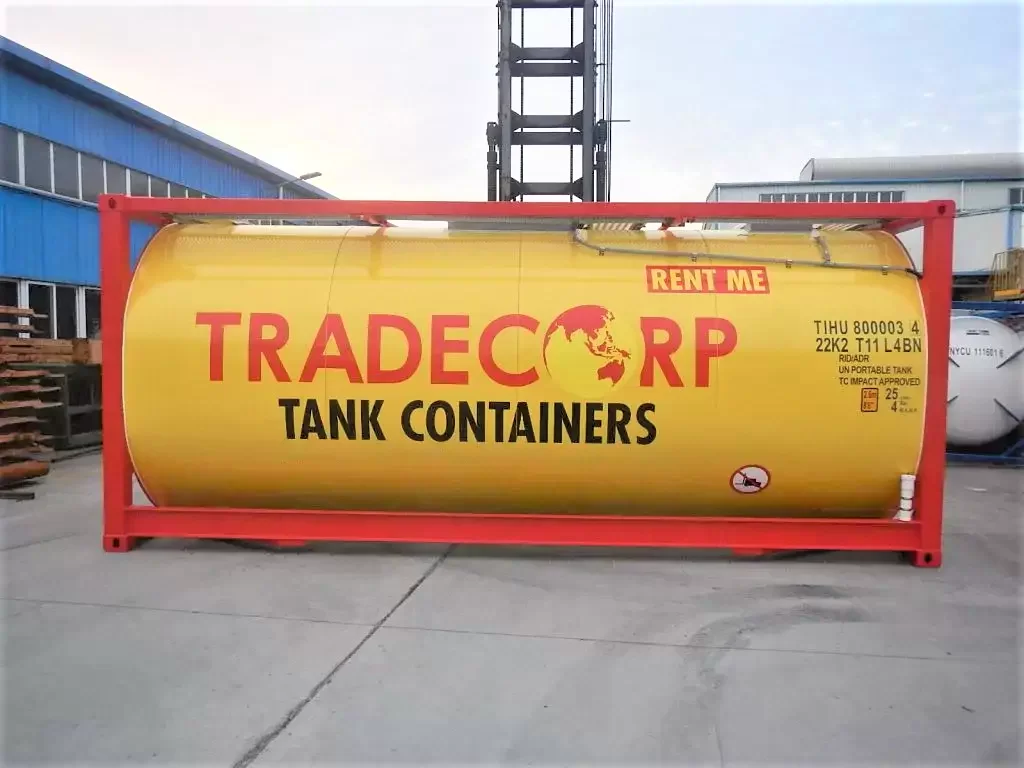Shipping hazardous materials is an important yet complex process that involves the transportation of materials that are potentially harmful to human health, property, and the environment.
Hazardous materials can include substances that are toxic, flammable, explosive, corrosive, or otherwise dangerous. The transportation of hazardous materials is highly regulated to ensure the safety of those involved in transportation, as well as to prevent accidents, spills, and other incidents that could harm people or the environment.
Many dangerous goods are transported in tank containers. They provide a safe and secure way to transport dangerous goods in bulk, as they are designed to efficiently transport goods and are equipped with safety measures.
Several types of hazardous materials are commonly shipped, and each requires specific handling practices to ensure safe transportation. In this article, we will take a look at the nine most common types of hazardous materials and the safe handling practices required for transporting.
Flammable liquids
Flammable liquids are among the most commonly shipped hazardous materials. These include fuels, solvents, and cleaning fluids. Flammable liquids have a flashpoint, below 100 degrees Fahrenheit (37.8 degrees Celsius), and can ignite and burn easily.
Flammable liquids are commonly used in a variety of industries, such as manufacturing, transportation, and construction. Some of the flammable materials include gasoline, diesel fuel, acetone, ethanol, methanol, toluene, xylene, paint thinner, and more. Safe handling practices for flammable liquids include using tank containers with emergency vents (to decrease pressure in fire conditions) and at least one pressure-activated vent, having safety data sheets, and proper labeling.
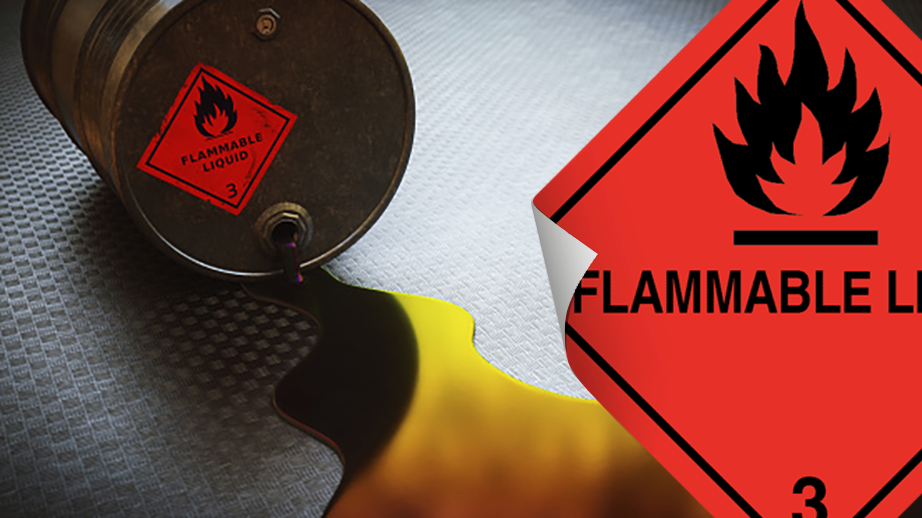
Explosives
An explosive is a reactive substance that contains a great amount of potential energy that can produce an explosion. These materials can include fireworks, dynamite, and other types of ammunition. Explosives are used in a variety of industries for different applications, such as mining, construction, oil and gas, and the military.
To ship explosive materials, the shipper must comply with strict regulations and guidelines. The shipper must properly package, label, and mark the hazardous material, and follow all necessary safety precautions during shipping. It is also important to choose a reputable carrier that has experience in handling hazardous materials and can ensure safe delivery.
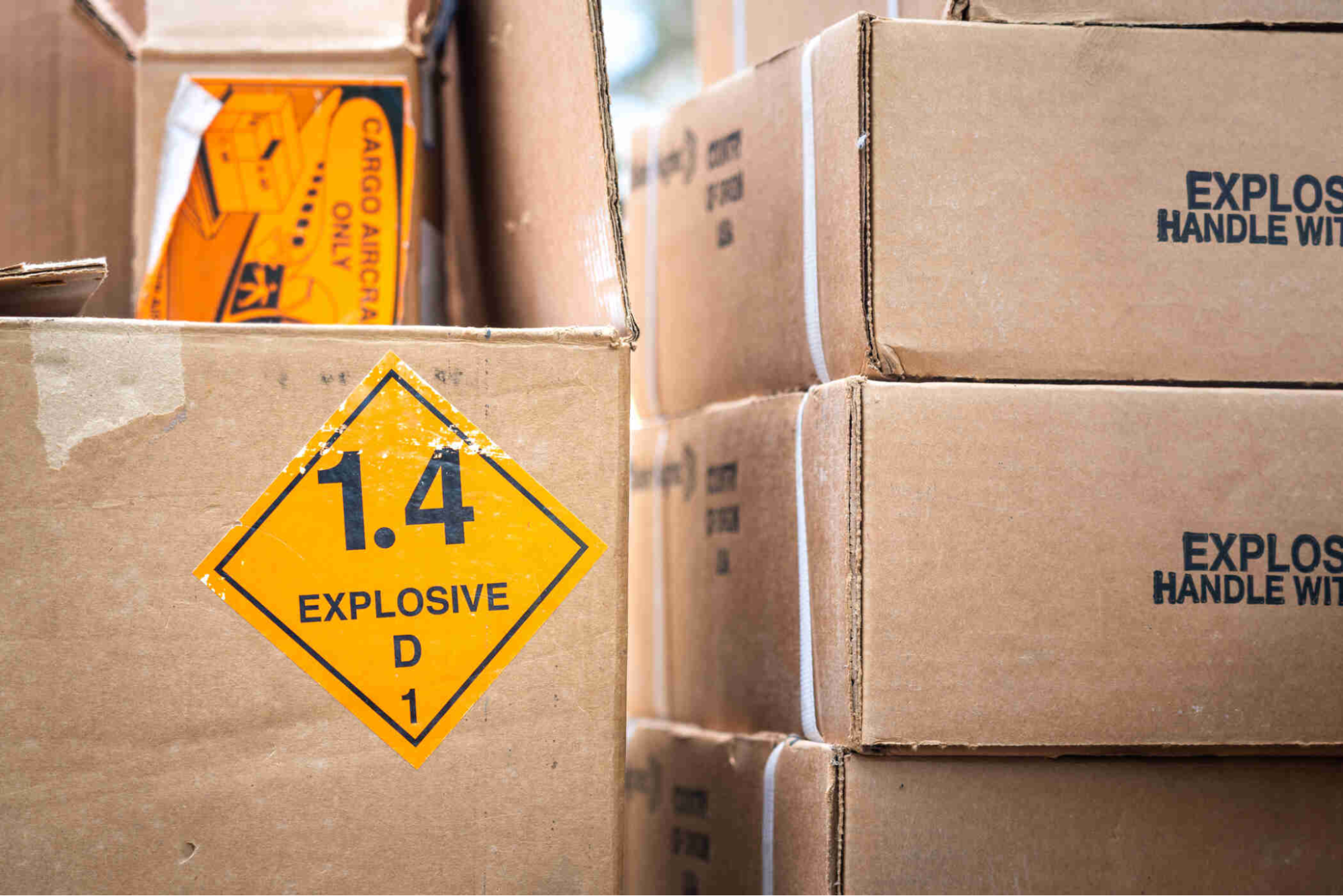
Radioactive materials
Radioactive materials are substances that release ionizing radiation, which can be harmful to human health and the environment. These materials are shipped for a variety of purposes, such as medical diagnosis and treatment, industrial radiography, nuclear power generation, and research. Radioactive materials require careful handling to prevent contamination and exposure to radiation. Proper labeling and packaging are essential, as well as adherence to regulations regarding transport and storage.
Radioactive materials that are normally shipped include medical isotopes, nuclear fuel, waste, as well as scientific and industrial equipment. It is important to handle and dispose of these materials properly, to minimize the risks of exposure to ionizing radiation. Additionally, special precautions must be taken when shipping these materials to ensure the safety of those handling the materials and the environment.

Corrosive materials
Corrosive materials are substances that are highly acidic and can cause severe damage to other materials through a chemical reaction. They are often dangerous to handle and require special precautions when being shipped. These materials include battery acid, industrial chemicals, and some cleaning agents. Proper handling of corrosive materials includes the use of protective equipment, such as gloves and eyewear, and proper ventilation.
Minimizing the risk of corrosive materials during shipping requires careful planning, proper handling, and compliance with safety regulations. It is important to work with experienced shipping providers who are knowledgeable in handling and transporting these hazardous materials to ensure that the materials are shipped safely and effectively.
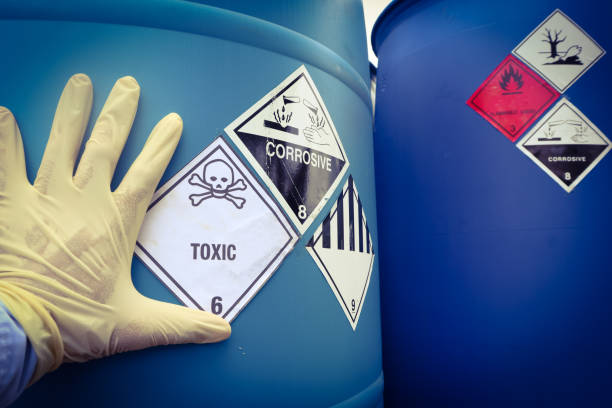
Compressed gasses
Compressed gasses are substances that are stored under pressure in containers. Compressed gasses are often used in industrial and medical applications, and some of them can be highly flammable or toxic. Proper handling of compressed gasses requires proper labeling, specialized containers, and adherence to safety regulations regarding transport and storage.
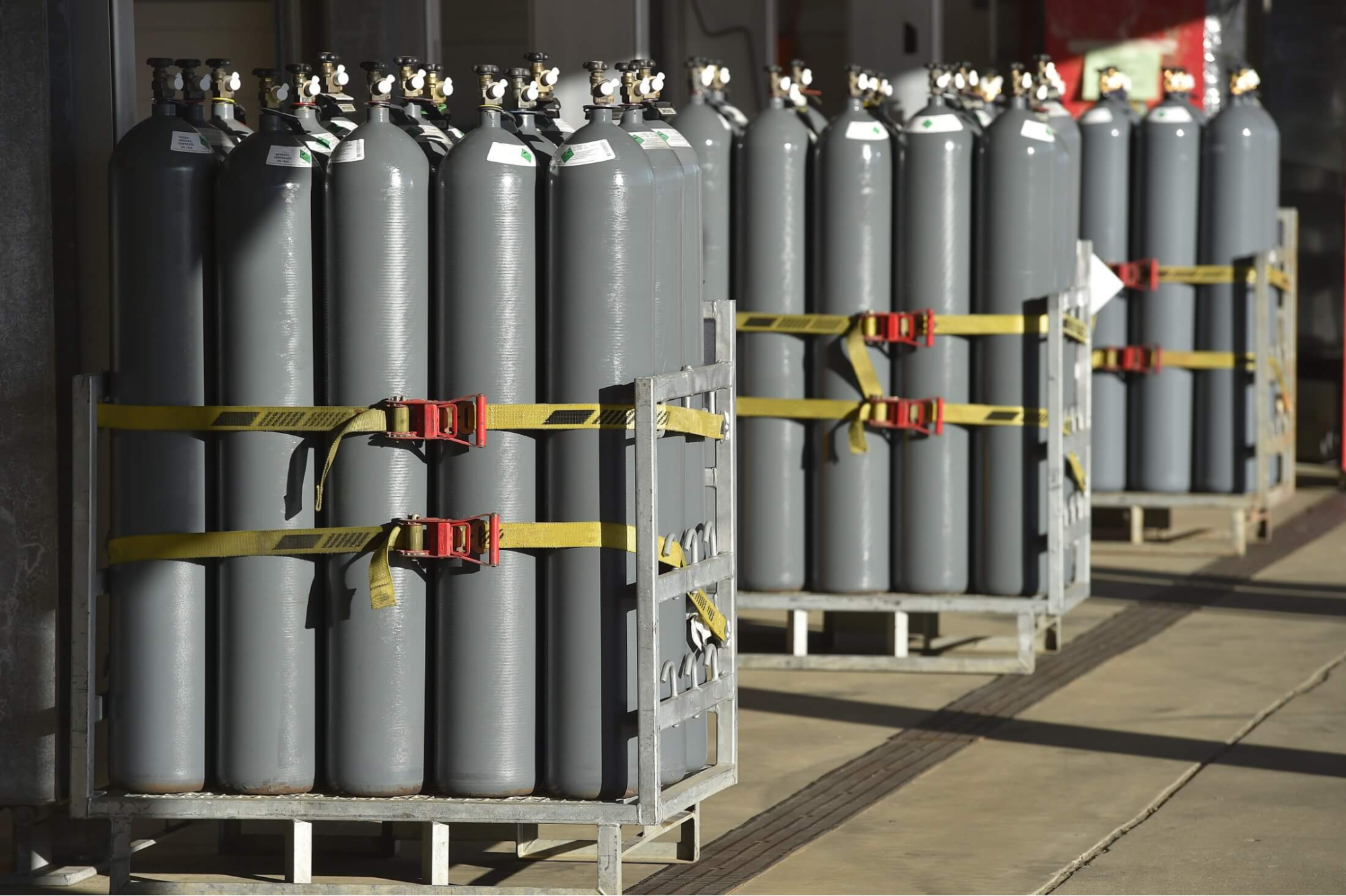
Oxidizers
Oxidizers are materials that promote combustion and can intensify a fire. Oxidizers are used in a variety of industries for different purposes, such as the chemical industry, pulp and paper industry, and laboratory research applications. They are used in the production of chemicals such as fertilizers, bleaching wood pulp, rocket propellants, chlorine, and metal cleaners.
Proper handling of oxidizers includes appropriate labeling, proper storage away from flammable materials, and adherence to safety regulations. It is important to handle and transport them safely to prevent accidents and protect the environment and public health.
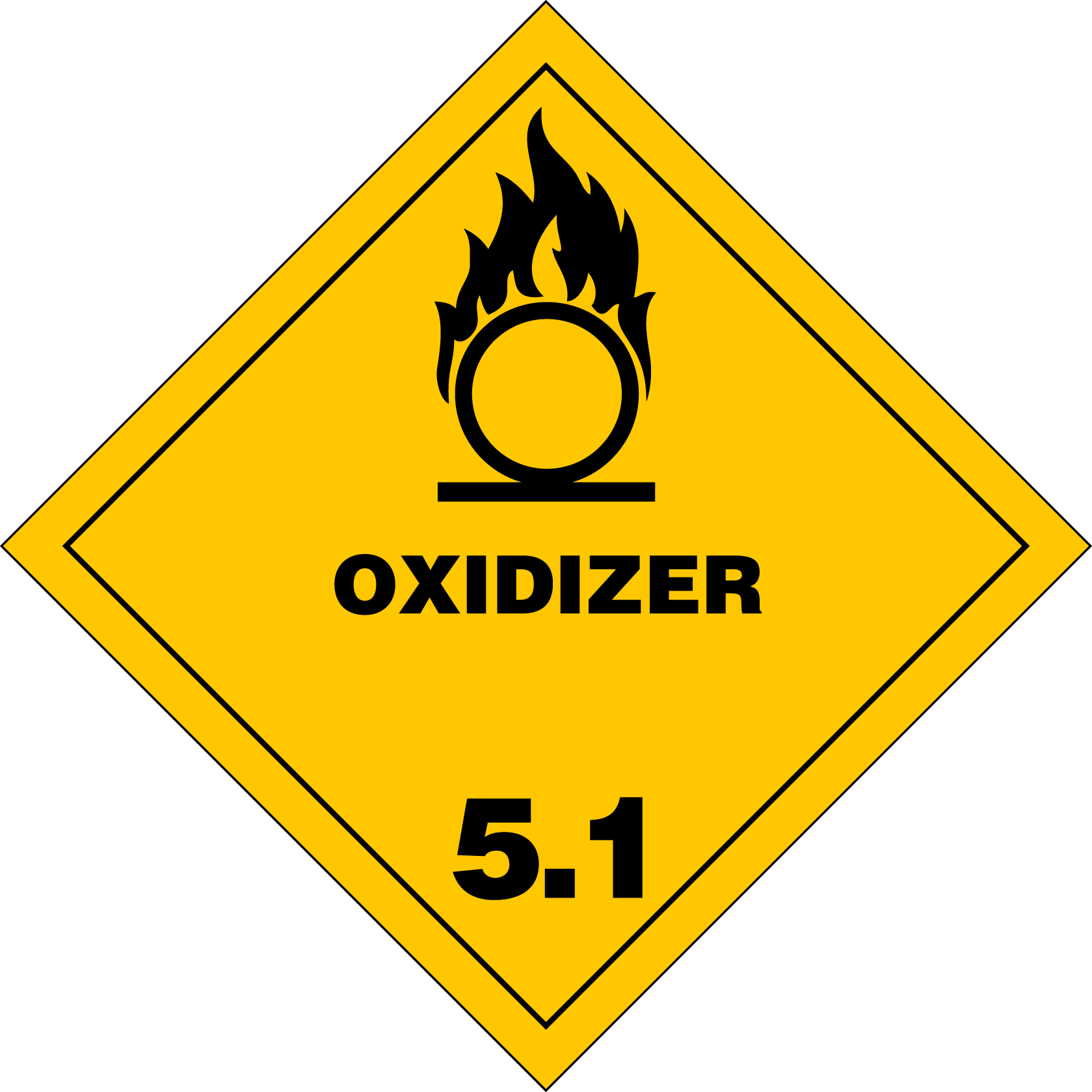
Toxic materials
Toxic materials are substances that can be harmful if they come in contact with other materials or when ingested, inhaled, or absorbed through the skin. These materials may include chemicals, pesticides, pharmaceuticals, and radioactive materials. Proper handling of toxic materials includes proper labeling, use of protective equipment, and proper ventilation.
The safe shipping of toxic materials requires strict adherence to regulations and proper handling procedures to ensure the safety of those involved and to prevent contamination or release of the materials into the environment. It is important to work with experienced and qualified professionals who can provide guidance and assistance with the shipping process.
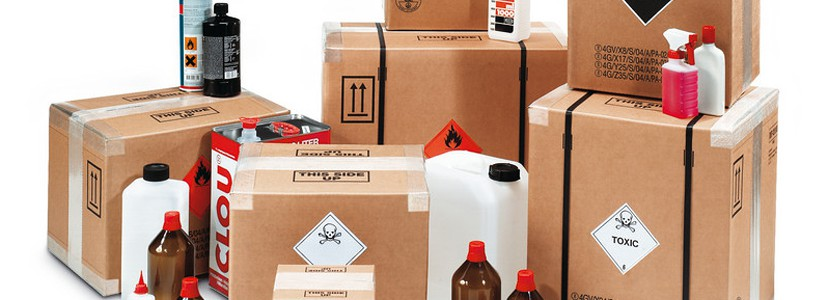
Infectious substances
Infectious substances include biological materials that can cause disease or infection in humans or animals. These materials include medical waste, blood samples, and laboratory cultures. Proper handling of infectious substances includes specialized containers, adherence to safety regulations, and proper disposal methods.
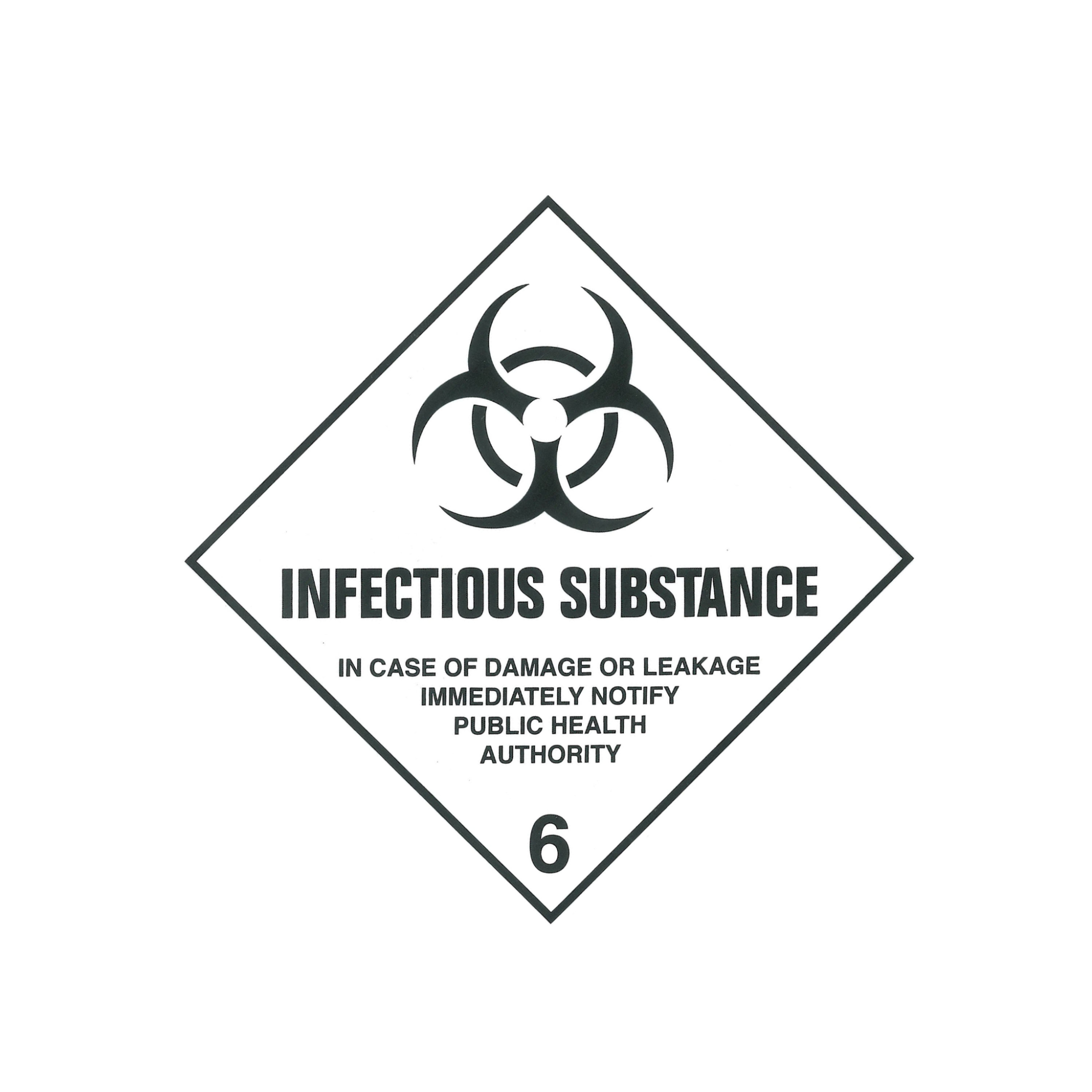
Miscellaneous hazardous materials
Miscellaneous hazardous materials include any other materials that are considered hazardous, including lithium batteries, dry ice, and some types of consumer products. Many hazardous materials can cause harm to the environment if they are not handled and disposed of properly. It is important to be aware of the environmental impact of the hazardous materials being shipped and to take measures to minimize any potential harm.
By following the specific handling practices for each type of hazardous material and general safety practices, the risk of accidents and incidents can be minimized. These may include:
- Proper labeling and marking of packages containing hazardous materials.
- Use of appropriate packaging materials and containers that are designed to contain and protect hazardous materials during transportation.
- Proper loading and unloading of hazardous materials, including securing packages to prevent movement or damage during transportation.
- Compliance with regulations and guidelines
In addition to proper handling and storage practices, it is also important to have a plan in place in case of an accident or incident involving hazardous materials. This includes having emergency response procedures in place, such as a spill response plan, and providing training to all personnel involved in the shipping process.
Purchasing a Conex Box
Tradecorp offers a wide range of customization options for shipping containers, including tank containers and industrial containers, for storing dangerous goods. We can help you find the perfect container solution for your business or project needs. You can choose from a variety of shipping container types and sizes, including standard containers, reefers, and customizable ones. Our containers will give you the best value and will be ready for you when you need them. Fill out the contact form on our website, and we will promptly respond to your inquiry.

